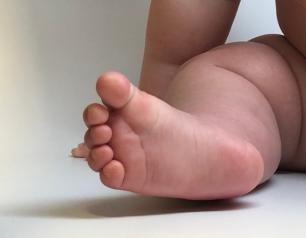22 Results
Omalizumab Treats Multi-Food Allergy Better than Oral Immunotherapy
March 3, 2025
The high rate of allergic reactions and other intolerable side effects of oral immunotherapy in the NIH-funded trial explained the superiority of omalizumab.

Therapy Helps Peanut-Allergic Kids Tolerate Tablespoons of Peanut Butter
February 10, 2025
Eating slowly increasing amounts of peanut butter enabled 100% of kids with peanut allergy to consume 3 tablespoons of peanut butter without an allergic reaction.
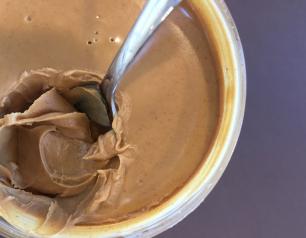
Kidney Transplantation Between Donors and Recipients with HIV Is Safe
October 16, 2024
Kidney transplantation from deceased donors with HIV to recipients with HIV was safe and comparable to kidney transplantation from donors without HIV.
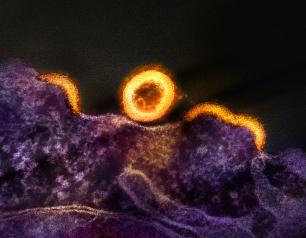
Introducing Peanut in Infancy Prevents Peanut Allergy into Adolescence
May 28, 2024
Feeding children peanut products regularly from infancy to age 5 years reduced the rate of peanut allergy in adolescence by 71%, even when the children ate or avoided peanut products as desired for many years. These new findings, from a study sponsored and co-funded by the National Institutes of Health’s National Institute of Allergy and Infectious Diseases (NIAID), provide conclusive evidence that achieving long-term prevention of peanut allergy is possible through early allergen consumption. The results were published today in the journal NEJM Evidence.
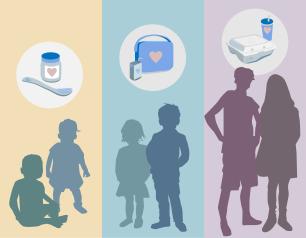
Antibody Reduces Allergic Reactions to Multiple Foods in NIH Trial
February 25, 2024
A 16-week course of a monoclonal antibody, omalizumab, increased the amount of peanut, tree nuts, egg, milk and wheat that multi-food allergic children as young as 1 year could consume without an allergic reaction in a late-stage clinical trial.

Statement: NIH Trial Data Underpins FDA Approval of Omalizumab for Food Allergy
February 16, 2024
FDA has approved omalizumab for the reduction of allergic reactions, including anaphylaxis, that may occur with an accidental exposure to one or more foods in adults and children aged 1 year and older with food allergy. People taking omalizumab still need to avoid exposure to foods to which they are allergic.

Forgoing One Food Treats Eosinophilic Esophagitis as Well as Excluding Six
February 27, 2023
Eliminating animal milk alone from the diet of adults with eosinophilic esophagitis, or EoE, is as effective at treating the disease as eliminating animal milk plus five other common foods, a clinical trial funded by the National Institutes of Health has found. For people with EoE whose disease remains active after they forgo animal milk, a more restrictive diet may help them achieve remission, according to the researchers. These findings were published today in the journal The Lancet Gastroenterology & Hepatology.
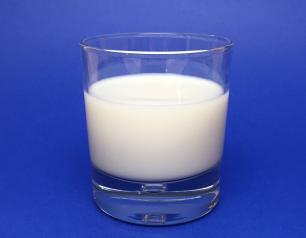
NIH Study Links Specific Outdoor Air Pollutants to Asthma Attacks in Urban Children
January 4, 2023
Moderate levels of two outdoor air pollutants, ozone and fine particulate matter, are associated with non-viral asthma attacks in children and adolescents who live in low-income urban areas, a study funded by the National Institutes of Health has found. The study also identifies associations between exposure to the two pollutants and molecular changes in the children’s airways during non-viral asthma attacks, suggesting potential mechanisms for those attacks.

Monoclonal Antibody Improves Cat Allergen Immunotherapy
October 11, 2022
An experimental approach to enhancing a standard cat allergen immunotherapy, often called allergy shots, made it more effective and faster acting, and the benefits persisted for a year after treatment ended.

Monoclonal Antibody Reduces Asthma Attacks in Urban Youth
August 10, 2022
A monoclonal antibody, mepolizumab, decreased asthma attacks by 27% in Black and Hispanic children and adolescents who have a form of severe asthma, are prone to asthma attacks and live in low-income urban neighborhoods, a National Institutes of Health clinical trial has found.
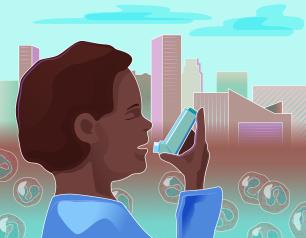
NIH Launches Trial of Monoclonal Antibody to Treat Asthma in Urban Youth
June 2, 2022
The National Institutes of Health has launched a clinical trial testing whether a monoclonal antibody, dupilumab, can reduce asthma attacks and improve lung function and asthma symptoms in children with poorly controlled allergic asthma who live in low-income urban neighborhoods.
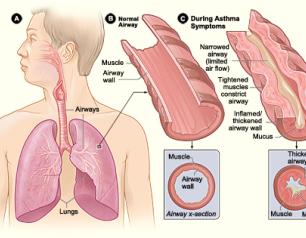
Trial Tests Strategy to Augment Response to COVID-19 Vaccines in Transplant Recipients
January 31, 2022
A study has begun to assess the antibody response to an additional dose of a COVID-19 mRNA vaccine in kidney and liver transplant recipients, either alone or with a concurrent reduction in immunosuppressive medication.
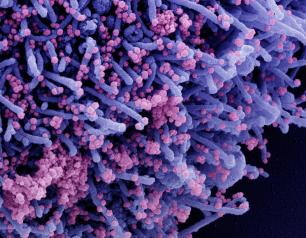
Oral Immunotherapy Induces Remission of Peanut Allergy in Some Young Children
January 20, 2022
A clinical trial funded by the National Institutes of Health has found that giving peanut oral immunotherapy to highly peanut-allergic children ages 1 to 3 years safely desensitized most of them to peanut and induced remission of peanut allergy in one-fifth.
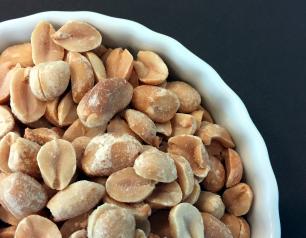
NIH Launches Study of Extra COVID-19 Vaccine Dose in People with Autoimmune Disease
August 27, 2021
The National Institutes of Health has begun a clinical trial to assess the antibody response to an extra dose of an authorized or approved COVID-19 vaccine in people with autoimmune disease who did not respond to an original COVID-19 vaccine regimen. The trial also will investigate whether pausing immunosuppressive therapy for autoimmune disease improves the antibody response to an extra dose of a COVID-19 vaccine in this population.
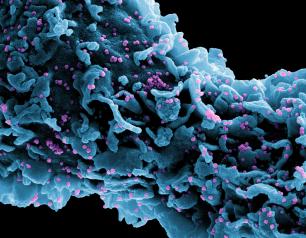
NIH Launches Study of Third COVID-19 Vaccine Dose in Kidney Transplant Recipients
August 10, 2021
A pilot study has begun to assess the antibody response to a third dose of an authorized COVID-19 mRNA vaccine in kidney transplant recipients who did not respond to two doses of the Moderna or Pfizer-BioNTech COVID-19 vaccine. The Phase 2 trial is sponsored and funded by the National Institute of Allergy and Infectious Diseases (NIAID), part of the National Institutes of Health.
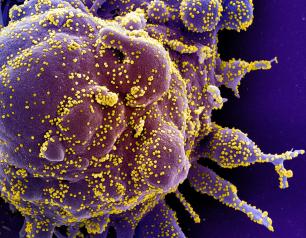
Adjuvant Developed with NIH Funding Enhances Efficacy of India’s COVID-19 Vaccine
June 29, 2021
An adjuvant developed with funding from the National Institutes of Health has contributed to the success of the highly efficacious COVAXIN COVID-19 vaccine, which roughly 25 million people have received to date in India and elsewhere. Adjuvants are substances formulated as part of a vaccine to boost immune responses and enhance a vaccine’s effectiveness. COVAXIN was developed and is manufactured in India, which is currently suffering a devastating health crisis due to COVID-19.
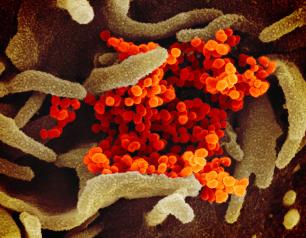
Gene Therapy Restores Immune Function in Children with Rare Immunodeficiency
May 11, 2021
An investigational gene therapy can safely restore the immune systems of infants and children who have a rare, life-threatening inherited immunodeficiency disorder, according to research supported in part by the National Institutes of Health.
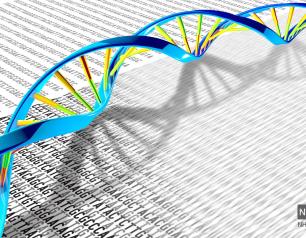
NIH Statement on World Asthma Day 2021
May 5, 2021
On World Asthma Day, the National Institutes of Health reaffirms its commitment to research to improve the lives of people with asthma. More than 25 million people in the United States have asthma, including 5.1 million children, according to the Centers for Disease Control and Prevention. This chronic lung disease can reduce quality of life, contributes to considerable emotional and financial stress, and is a major contributing factor to missed time from school and work.
NIH Establishes New Childhood Asthma Clinical Research Network
April 23, 2021
The National Institute of Allergy and Infectious Diseases (NIAID), part of the National Institutes of Health, has awarded $10 million in first-year funding to establish a clinical research network called Childhood Asthma in Urban Settings (CAUSE). This nationwide network will conduct observational studies and clinical trials to improve understanding of asthma and develop treatment and prevention approaches tailored to children of low-income families living in urban communities. NIAID intends to provide approximately $70 million over seven years to support the CAUSE network.
NIH Trial of Anti-CD14 Antibody to Treat COVID-19 Respiratory Disease Begins
April 13, 2021
A clinical trial testing the safety and efficacy of an investigational monoclonal antibody for treating people who are hospitalized with respiratory disease and low blood oxygen due to infection with SARS-CoV-2, the virus that causes COVID-19, has begun. The Phase 2 trial, called the COVID-19 anti-CD14 Treatment Trial (CaTT), is sponsored and funded by the National Institute of Allergy and Infectious Diseases (NIAID), part of the National Institutes of Health.
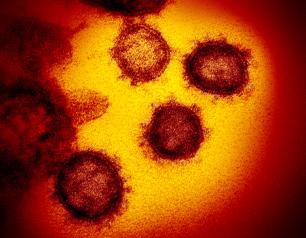
NIH Begins Study of Allergic Reactions to Moderna, Pfizer-BioNTech COVID-19 Vaccines
April 7, 2021
A clinical trial is underway to determine whether people who are highly allergic or have a mast cell disorder are at increased risk for an immediate, systemic allergic reaction to the Moderna or Pfizer-BioNTech COVID-19 vaccines. A systemic allergic reaction to a vaccine occurs in one or more parts of the body beyond the injection site. If such an allergic reaction occurs in study participants, investigators will assess whether the reactions are more frequent in participants who are highly allergic or have a mast cell disorder than in participants with no allergic history.
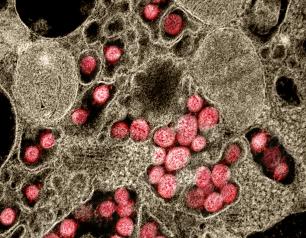
NIH Study of Early Predictors, Mechanisms of Food Allergy and Eczema has Begun
March 19, 2021
A study to identify prenatal and early childhood markers of high risk for food allergy and atopic dermatitis, or eczema, as well as biological pathways that lead to these conditions, has begun. The observational study of children from birth to age 3 years will examine the origins of allergic disease by integrating interdisciplinary analyses of data from more than 260 biological and environmental samples and survey responses from each of 2,500 families.
